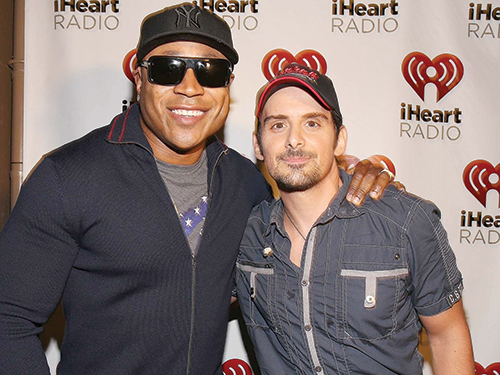Brad Paisley wanted to start a national discussion on race with his song “Accidental Racist.” He definitely got people talking. The song, recorded with rapper and actor LL Cool J, incited a flurry of reactions, but more for how poorly it handled the subject of race than for its ability to provoke discussion.
Brad Paisley, LL Cool J, do-rags and iron chains

Brad Paisley wanted to start a national discussion on race with his song “Accidental Racist.” He definitely got people talking. The song, recorded with rapper and actor LL Cool J, incited a flurry of reactions, but more for how poorly it handled the subject of race than for its ability to provoke discussion.
Some say any dialogue is good dialogue. I disagree. This song has taken the conversation back a few decades.
Paisley sings about being a proud white Southerner who wants black people to understand that wearing a “red flag” on his T-shirt just means he’s a “Skynyrd fan.” He admits he doesn’t like everything the South did, that we’re paying for the mistakes “that a bunch of folks made long before we came,” but unfortunately we can’t “rewrite history.”
Enter LL Cool J. He wants “Mr. White Man” to know that just because he wears sagging pants it doesn’t mean he’s “up to no good” and promises if the man doesn’t judge his “do-rag” J won’t judge the “red flag.” Arguably, the lowest point of the song is when he says, “If you don’t judge my gold chains, I’ll forget the iron chains.”
By the end, they’re both buddies hoping everyone can just “let bygones be bygones.”
Not only is this a seriously bad piece of writing, it’s a hopeless simplification of slavery and its lasting effects on our society. Comparing a do-rag to the Confederate flag? Real-ly? A piece of cloth worn on someone’s head has nothing to do with a flag that symbolizes a system of white supremacist power and the perpetuation of slavery.
Even worse, however, is equating gold chains with chains that manacled human beings together like animals. It’s beyond insulting.
We could easily tear this song apart, line by line, but Stephen Colbert already did so, impeccably, on The Colbert Report (a must-watch). However, we should question why Paisley felt the need to write the song.
In an interview with Entertainment Weekly, he said, “I just think art has a responsibility to lead the way, and I don’t know the answers, but I feel like asking the question is the first step. And we’re asking the question in a big way.”
Indeed, art should lead the way. Problem is, that’s not what this song is doing.
It’s always encouraging when artists use their music to bring up important issues, and
Paisley should be commended for his courage in putting himself out there. It couldn’t have been easy, and I realize scathing criticism may not encourage others to take the mic. Artists should absolutely join the conversation—we need them to. But first they should find out who’s already engaging in this discussion more eloquently and knowledgeably—people who have spent their lives addressing these issues—and learn from them. There are too many to name.
When discussing his motivation for the song, Paisley pointed out that the movies Django Unchained and Lincoln brought things to “a boil last year” and that there was “just a lot of talk about it. It was really obvious to me that we still have issues as a nation with this.”
It took two movies made in 2012 to clue him in to the fact that we have some problems with race in this country? And what was LL Cool J smoking when he reduced centuries of injustice to some not-so-clever rhyming?
Paisley had an epiphany and wanted to do something about it—that’s great. But instead of learning from the numerous incredibly intelligent and prolific writers, speakers, thinkers and artists who have for years wrestled with the haunting specter of slavery and its continuing effects on our country, he thought he’d be the first to “kick off” the discussion with a song steeped in ignorant, even offensive, thinking.
Author, professor and TV host Toure said it best in his column for Time magazine: “Let bygones be bygones? Slavery is a formative event that led us to the current racial disparities in income inequality and incarceration trends. It’s not excuse-making to recognize the pervasive, continuing impact of slavery. It’s not necessary to speak of slavery every day. But it’s critical to never forget.”






